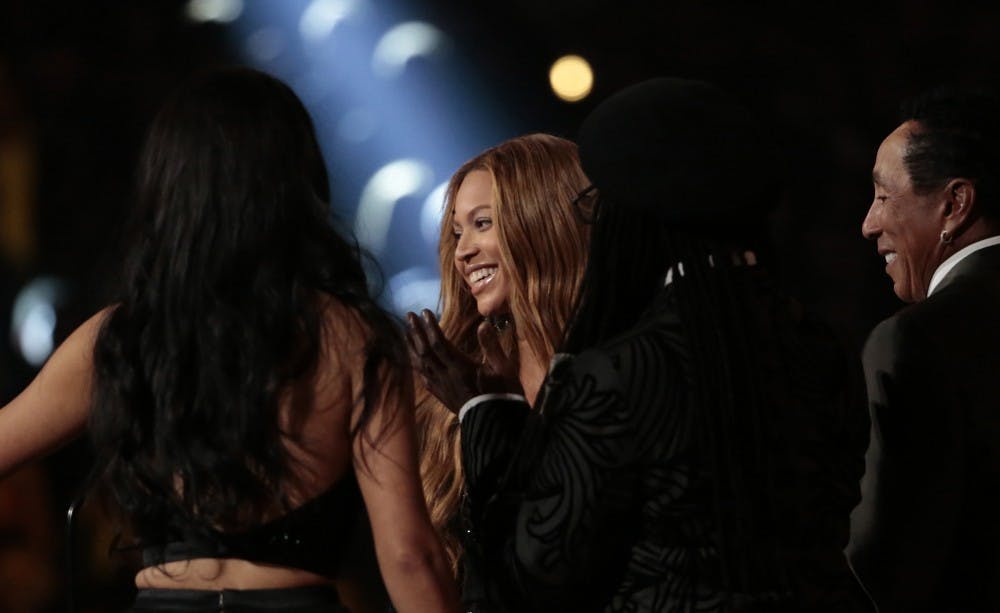In our fast-moving culture of instant gratification, music artists have realized that the best way to get us to pay attention to their work is to throw their creations at us when we least expect it.
Due to the decline of album sales from the surge in online music streaming, “album dropping” in the style of Miley Cyrus and Beyoncé could become the new norm for releasing music. This trend could hit the pause button on traditional notions of album production and force artists to rethink how they get their songs to their fans.
In case you missed it, pop culture icon Miley Cyrus closed out this year’s MTV Video Music Awards with the unexpected announcement that her latest album, “Miley Cyrus and Her Dead Petz” would be available to be streamed online for free.
This stunt was a shock to the millions of VMA viewers, but Miley wasn’t the only one who released a surprise album. If you have an iPhone, I’m sure you remember the wonderful morning in September 2014 when you woke up and realized you’d been blessed by Bono and the ghost of Steve Jobs with all 48 glorious minutes U2’s masterpiece “Songs of Innocence” automatically downloaded to your iTunes library for free, without the pesky inconvenience of needing to tap the “download” button yourself. That’s because some records are works of genius that are so fantastic that you shouldn’t need to pay for them or even ask for them.
See more: Surprise Miley Cyrus album ‘Dead Petz’ a time-traveling acid drop made for the club
Some of the other musicians who’ve recently dropped albums include Drake, Skrillex, Jay-Z and Brittany Howard of Alabama Shakes, just to name a few. This week, there were (false) rumors that the larger-than-life boy band One Direction was going to release an unannounced album on Thursday, Sept. 10.
This all begs the question, “Why are so many artists doing this?"
I suspect that this trend is a thing because musicians know that our extremely short attention spans are causing the conventional model of announcing an album’s launch to lose its appeal. The old model includes hyping the album months in advance, periodically making singles available in a lead-up to a highly anticipated grand release date. In the age of Twitter, Instagram and Snapchat, I think artists and labels are trying to take advantage of our capacity to create a giant buzz about work in a matter of hours, not months.
The element of surprise isn’t the only new dimension being added to the music industry; another thing that's becoming the expectation is the belief that we should be able to access our music at no charge. That’s why so many of these dropped albums are available for free. We’re so used to Spotify, Vevo, Pandora, SoundCloud, VKontakte, piracy and every other way to listen to music without directly paying for it that the thought of buying a CD or digital download is becoming foreign to us.
To me, it’s not surprising that the focus of so many musicians has shifted away from selling albums. With album sales at a record low and steadily decreasing, it makes sense that the artists at the top of the food chain are focused on selling themselves rather than their work. There are so many ways for superstars to make money outside of record sales, such as performances, sponsorships, product lines and television appearances, that many of them are willing to sacrifice a little download revenue in exchange for the increased popularity that they receive by giving more people access to their work.
As for whether or not this strategy is actually effective, the jury is still out. Industry insider Damien Alexander with label A&R for Relumae Records commented on the phenomenon, saying, “I don't think it's a bad thing or a positive thing. Not every artist will be able to do that.”
Despite the popularity of album dropping and free music, not all artists are behind the strategy. Taylor Swift, the top-selling artist of 2014, is not a fan. She explained why she removed the vast majority of her music from Spotify, saying, “Music is art, and art is important and rare. Important, rare things are valuable. Valuable things should be paid for.”
To Apple, Love Taylor
http://t.co/GN9jiRkqlj
— Taylor Swift (@taylorswift13) June 21, 2015
The bottom line is that as consumers, we get to choose how we get our music. Most of us want access to almost all the music in the world, either for free or for a low, flat price, so that’s what we’ve been given. Others of us still like CDs or even vinyl, so we have that option too. Album dropping and free music may be becoming standard practice, but it’s up to us to determine what the standard should be.
Reach the columnist at cmfitzpa@asu.edu or follow @CodyFitzStories on Twitter.
Editor’s note: The opinions presented in this column are the author’s and do not imply any endorsement from The State Press or its editors.
Want to join the conversation? Send an email to opiniondesk.statepress@gmail.com. Keep letters under 300 words and be sure to include your university affiliation. Anonymity will not be granted.
Like The State Press on Facebook and follow @statepress on Twitter.




